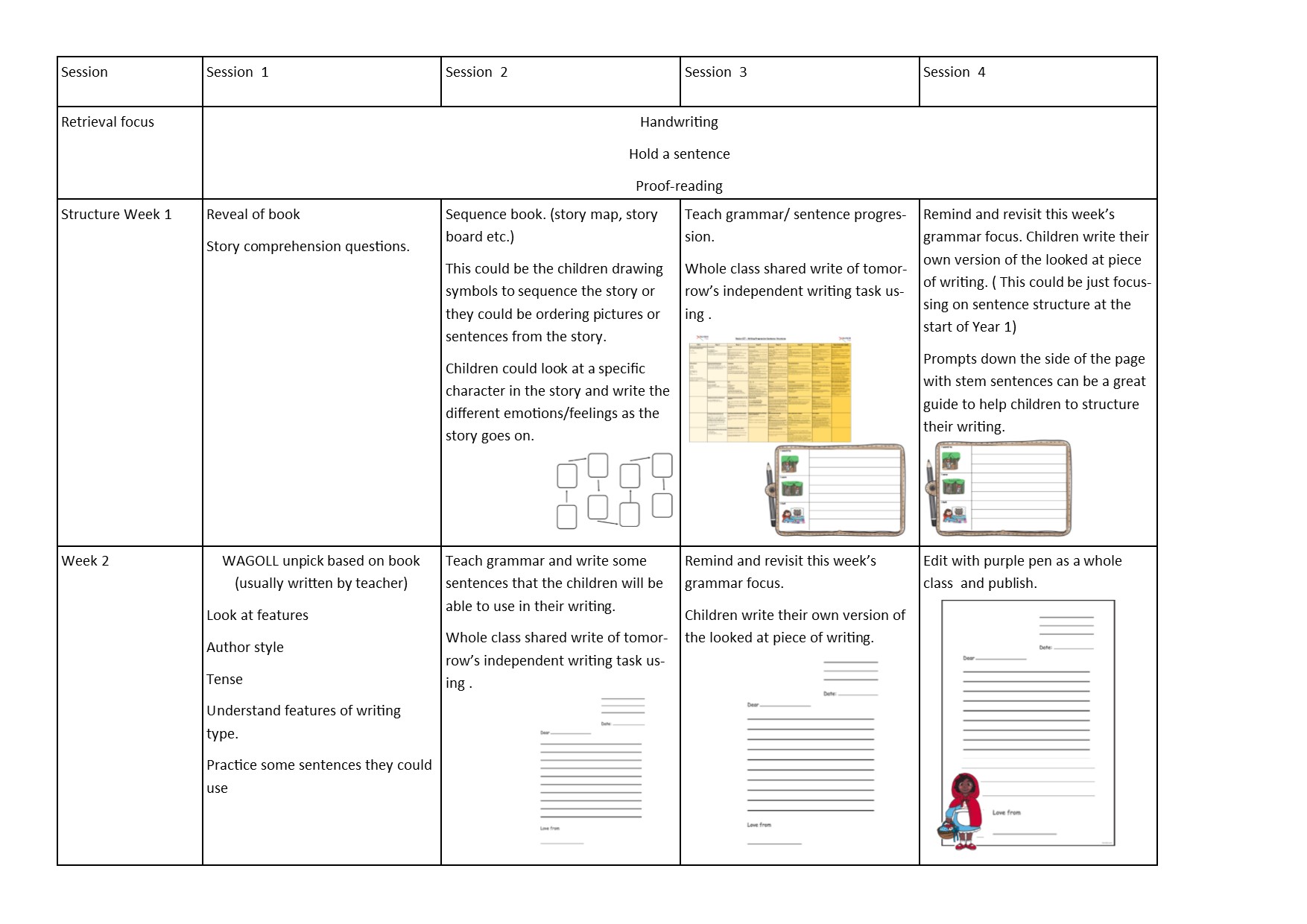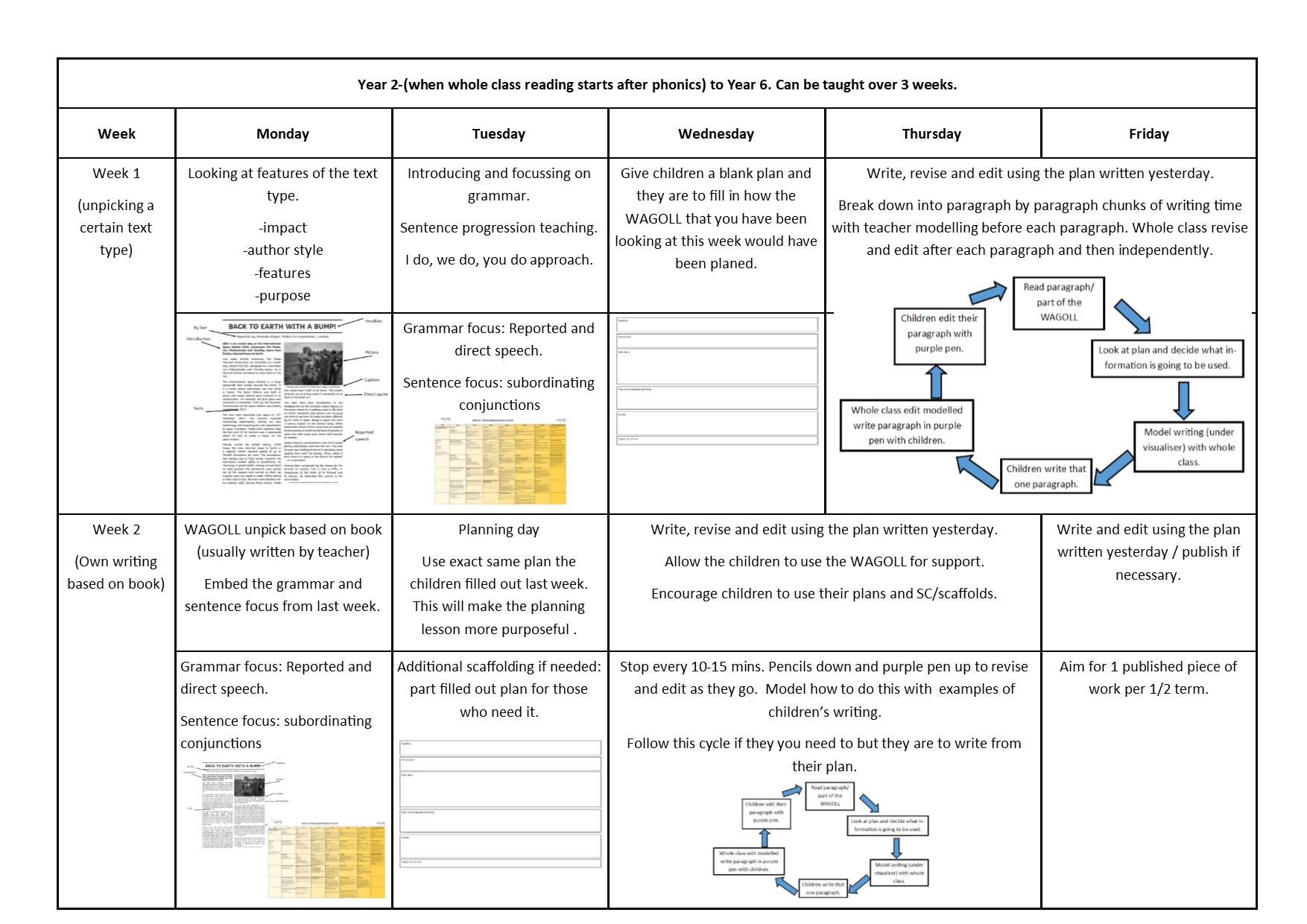Writing
Writing Intent
At Holy Family, we aim for all pupils to leave school being able to use fluent, legible and speedy handwriting. To do this, all children are provided with many opportunities to; develop and apply their writing; to plan, revise and evaluate their writing, focusing on developing on both transcription and composition. They will also develop an awareness of the audience, purpose and context, and an increasingly wide knowledge of vocabulary and grammar.
Writing Implementation
Writing:
At Holy Family, writing begins from a very early age - as soon as a child can mark make. Gross and fine motor skills are developed through our provision within EYFS, ensuring all children developmentally prepared to form letters correctly.
In Key Stage 1, children are taught the skills of writing primarily through oral storytelling and discussion. This supports them to structure the text and independently write in the chosen genre. In Key Stage 2, children write in various genres for a range of purposes. They analyse the model text and unpick the grammatical features and organisation, in order to apply these in their own writing.
Throughout all year groups, we teach writing through engaging and challenging topic-based texts. This supports them in the application of vocabulary and structure. Our Core Texts drive our learning in English and relate to the Topic being studied. These texts are carefully chosen to engage our children, enhance our foundation subjects and expose our pupils to rich language and form. Additionally, children will experience enrichment opportunities to promote and inspire writing of a high quality across the curriculum.
Teachers initially model and scaffold the learning before giving the children the opportunity to practise the skills needed for them to write independently. Children focus on modelled examples to explore and develop new vocabulary and discuss the impact language choices have on the reader. This process enriches and extends children’s vocabulary, which enables them to become confident writers.
Children will begin to look at the grammar structures used by writers and discuss the purpose of certain grammar choices. This enables children to write a range of sentence types and make impactful choices in their writing. Intentional monitoring is used throughout the lessons to provide the children with timely and constructive feedback, having immediate impact on their writing progression.
Spelling:
Our spelling curriculum follows National Curriculum guidelines developing the children’s understanding of the rules of spelling and the common exception words required in each year group. Children in the early years follow Little Wandle Letters and Sounds to become proficient in decoding words in order to spell them using their fingers to count out the number of sounds. Children in KS1 and KS2 receive a spelling list at the start of the spelling week which is sent home as part of homework and children are tested each week. The school also uses Spelling Shed to encourage the children to practise their spelling and to further embed the spelling rules.
Handwriting:
Children in EYFS practise letter formation as part of their daily phonics. This is carried through to Year 1 where children receive timetabled handwriting sessions. In year 2, children will learn to join their handwriting. In Key Stage 2, children continue to work on joining, legibility and writing at length, receiving a pen licence when they can fluently write in a neat, cursive style through the curriculum. By the time children get to year 5, all children are expected to be writing in pen. All children have opportunities to practice their handwriting weekly at a minimum.
Progression of Skills
Our progression of skills documents informs our planning. Each document lists the National Curriculum objectives that need to be taught each term. The objectives are mapped out for progression across the year. In writing lessons, these objectives are broken down into microscopic steps.
Please see the attached document.
Impact
The impact of our English Curriculum can be seen in the pupils’ ability to speak, discuss, read and write confidently and effectively. It can be seen in the writing the children produce and in our reading and writing results across the school.



